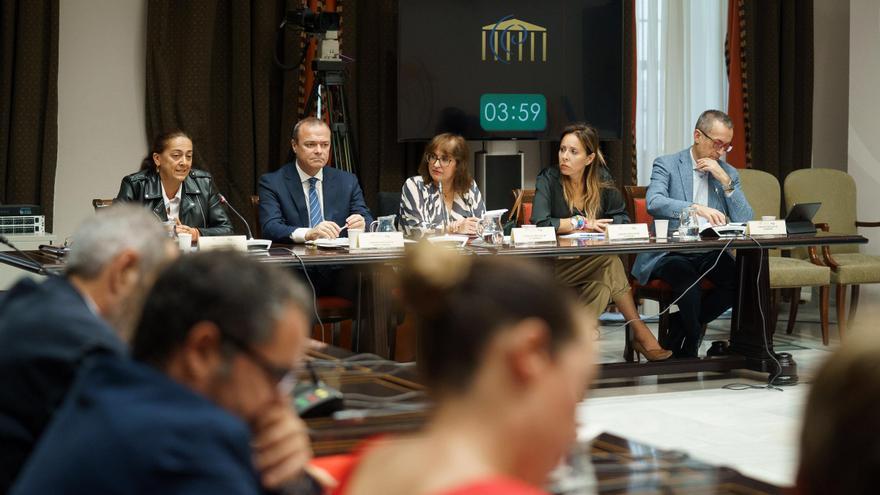
The seven councils have reacted differently to the urgent housing measures decree approved by the regional Government aimed at addressing the housing emergency in the Archipelago. During the General Councils Commission held yesterday in the Canarian Parliament, the Fuerteventura Council categorically rejected the decree, while councils from Gran Canaria, Tenerife, and La Gomera supported the initiative but requested the regulation to be processed as a bill to allow for amendments due to the “doubts” raised by certain points. Only the Palma Corporation expressed full support for the text, which they welcomed with great enthusiasm, while the councils of Lanzarote and El Hierro were absent from the meeting.
Despite CC being part of the regional Government, nationalists oppose the decree in Fuerteventura
Diverging opinions on this regulation even affect representatives belonging to the same political organisation. The decree was developed under the current regional Government – formed by CC, PP, ASG, and AHI. However, Majorero nationalists disapprove of the text promoted by their own party from the regional Executive. In contrast, the Socialists, despite being in opposition in Parliament, support the initiative from the Gran Canaria Council.
The Gran Canaria Psoe supports the decree despite their party being in opposition in Parliament
It is important to remember that the urgent housing measures decree was approved on February 19th by the Government Council and consists of about twenty measures with which the Executive defends that it will bring “thousands of public and private homes” onto the market. The initiatives are divided into two groups, those aimed at increasing land availability and the use of buildings for housing, and those focused on promoting the construction of affordable housing.
The regulation implements mechanisms such as expropriation, forced occupation of unfinished buildings and land, urgent resolution of procedures bypassing urban planning and administrative processes, providing maximum facilities to the private sector to build affordable homes on public land. It also proposes the conversion of commercial premises and offices into dwellings in an attempt to offer 4,000 houses in the market. It even allows to bypass environmental evaluation.
Controversial Points
One of the Fuerteventura Council’s main objections is precisely the possibility of being exempt from presenting an environmental impact assessment for housing interventions. According to the Minister of the Presidency and Territorial Planning from Fuerteventura, the nationalist Nereida Calero, the consequences of this point in the text on the environment will be “irreversible”, warning of the potential for “significant devastation”. “One must think before committing foolish acts,” she stated, while demanding the maintenance of the obligation to provide environmental impact reports and defining “the carrying capacity”.
The possibility of converting rustic land into urbanisable land generates controversy, as according to Calero, it is something that “while it may be an opportunity for some islands, for Fuerteventura it can be a problem”. Additionally, she recalled that one of the achievements of the Land Law was precisely the recovery of unplanned rustic land, which “should not now be reversed to become urbanisable land”.
José Miguel Ruano, Presidency Minister of the Tenerife Council, agreed that the urgent decree affects the Land Law, among other regulations, so modifications should be allowed to avoid conflicts. He also urged caution with mixed residential and tourist land uses and limiting them to those already designated as such. Augusto Hidalgo, Housing Minister of the Gran Canaria Council, supported the decree but called for amendments because “it heavily impacts municipal planning”.
Another controversial point is the positive consideration of administrative silence, “especially when local governments are only given one month to respond,” as stated by Rosa Elena García Meneses, Social Services Minister of the La Gomera Council.
















